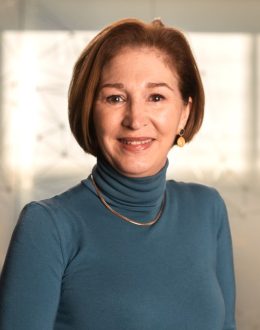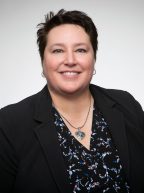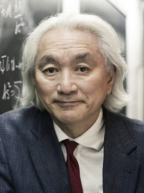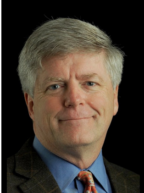
Anne-Marie Slaughter keynote speaker
- A Business Case for Inclusion: Why Multiculturalism Will Be Any Nation’s Greatest Asset
- Building a Stronger Future by Renewing the Promise of America
- Can Men and Women Have It All?
- How to See the World Differently: Leading and Leveraging Opportunities in Global Networks
- Leadership and Policymaking: Cultivating an Ability to See the World in Stereo
- Leading from the Center: Fostering Innovation through Horizontal Leadership
- Renewal Is for Leaders, Organizations and Countries
- Risk, Resilience, and Renewal: A Personal and Organizational Leadership Journey
- Strengthening Our Economy by Investing in Others: Inclusion, Collaboration, Participation
- The Future of Work in the Care Plus Economy
- Understand How the Russia Ukraine Conflict Will Impact Economic and Political Stability across the World
- Weathering Changes in Global Trade
Twentieth century business schools had no way to prepare organizational leaders for the challenges they are facing today. There was simply no playbook. Qualities like resilience, accountability, inclusiveness, humility, empathy and an ability to lead in any other way than from the front were never formally taught. Yet such attributes are now prerequisites for doing business in a rapidly transforming era of economic, political and cultural change. Few people know this better than renowned foreign policy expert Anne-Marie Slaughter, former dean of Princeton University’s School of Public and International Affairs and trailblazing CEO of New America.
A sought-after board member, executive educator and speaker, Slaughter’s recent personal journey demanded that she examine her own leadership style, as well as the workings of the globally respected think tank she has led since 2013. She recounts that journey in her latest book, “Renewal: From Crisis to Transformation in Our Lives, Work, and Politics” (Princeton University Press, September 2021), in which she shares valuable lessons that leaders in any sector of business or government can appreciate. Just reading the introduction is enough to draw the reader in as she reveals how her organization was blindsided by accusations that imperiled the institution’s reputation. Her full-hearted response, which included taking responsibility rather than laying blame or shying away, will inspire people in any organization – especially leaders – to look inward to bring about their own renewal, as well as find a renewed vision of what their organization can look like.
“One of the most valuable pieces of advice I got during that tough period was ‘run toward the criticism, seek it out! Be willing to listen to what other people have to say about you and your organization. Even if you think they’re only 2% right,’” explains Slaughter, who is the author of five books including “Women Men Work Family” (2015), “A New World Order” (2004) and “The Idea That is America” (2007). “I heeded my brilliant colleague’s advice, and the experience was transformative. I have always believed that as an organization or as a nation, we must face who we are with radical honesty before we can transform and build something new and better. That personal moment reaffirmed my belief. I have since become a more resilient, adaptable and inclusive leader who shares responsibility, listens more authentically and pivots in the face of change with a greater level of courage and certainty. The book was inspired by my own renewal, and now, when I teach leaders how to lead from the center in a networked world, I focus on leading from both the center and the edge.”
Former dean of Princeton University’s School of Public and International Affairs and a recognized authority on foreign policy, leadership and gender equality, Slaughter has spent decades educating decision makers on ways to move business and government forward. At New America, she oversees teams focused on preparing our political, economic, employment care and education systems for the future with an emphasis on racial and gender equity, an open and secure internet that protects user privacy, cybersecurity and women’s leadership.
In her wildly popular 2012 article, “Why Women Can’t Have It All,” Slaughter argued that the slow progress of women in traditionally male careers was not the fault of individual women, but rather of antiquated employment systems and social attitudes. She later broadened her thinking to include the vital importance of raising the economic and social value of caregiving – traditional women’s work – and expecting both men and women to share it equally. Her related 2014 TED Talk struck a chord with audiences across the world and has been viewed more than 2 million times.
When addressing concerns about the U.S. becoming too multicultural, Slaughter emphasizes that countries whose citizenship reflects the global population will uncover more opportunities for international trade and investment, collaboration and business partnerships. Plurality, she says, will be any nation’s greatest asset.
In recent years, Slaughter has been hyper-focused on getting corporations, governments, and civic organizations around the world to embrace a new people-centered model of global politics. Named one of the most powerful women in Washington, she explains how shifts in the economy, due to a combination of technology and “human work,” are creating new opportunities in an emerging “care plus economy” – part of an economic sector valued at $648 billion – and how these changes are poised to impact the future of work. She acknowledges the continuing reality of great power competition, but argues that it blinds us to the necessity of cooperating to address existential crises like climate change and pandemics, which threaten the survival of everyone – businesses, people and the planet.
Her core mission is to help countries – and the businesses and civic groups that operate in those countries – acknowledge their interdependence and learn to see the world in a human and planet-centered way.
“It is time to break free of 20th century thinking,” wrote Slaughter in a November 2021 op-ed for The New York Times. “The frameworks, paradigms and doctrines of that era, of any kind, are simply insufficient to meet the challenges of the 21st century. Bolder thinking is required, thinking that shifts away from states, whether great powers or lesser powers, democracies or autocracies. It is time to put people first, to see the world first as a planet of eight billion people rather than as an artificially constructed system of 195 countries and to measure all state actions in terms of their impact on people.”
Slaughter continues to teach leaders across the globe how they can effectively make that shift in ways that benefit their organization as well as the people and resources that keep it viable.




